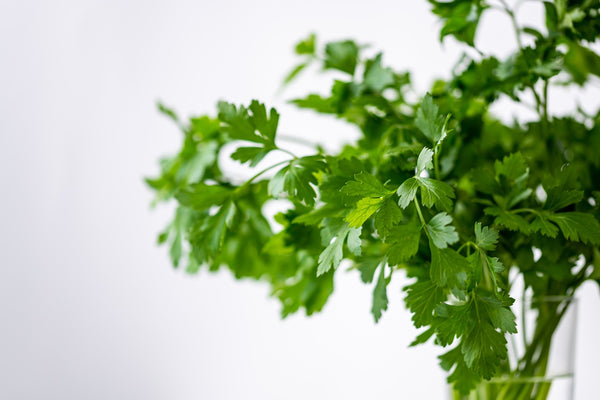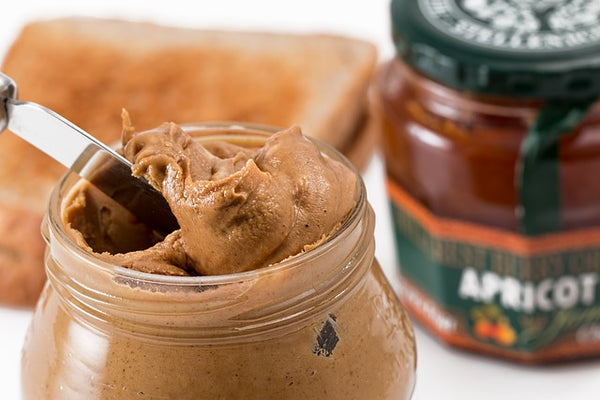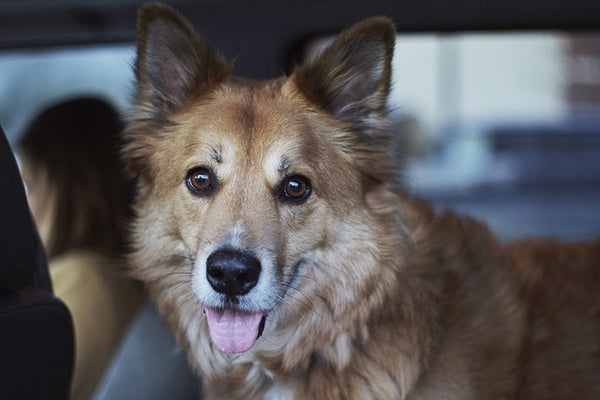Updated Answers to Dog Food Taboo Questions in 2024
As scientific research continues to evolve, a broader knowledge of the nutritional needs as well as preferences of canines has become available. In this article, we will answer some common dietary contraindications questions about dogs. After reading it, pet owners will be able to gain in-depth knowledge about pet nutrition. Hope this article can provide you with effective guidance and references to keep your dog healthier.
Table of Contents
1.Can dogs eat cilantro?
Cilantro is rich in vitamins and minerals. It is helpful for the health of dogs. Dogs can consume cilantro to promote digestion, increase their immunity, and supplement trace elements.
Because cilantro has a particular odor, some dogs like it and some don't. Just like humans do with cilantro. And cilantro is irritating, which can lead to soft stools diarrhea and vomiting for dogs with a weak stomach or allergies.
Therefore, when feeding cilantro, pet owners should follow a small amount of trial and observation.

2.Can dogs eat potato skins?
Potatoes are rich in vitamins, including C and B6, and minerals. It contains a compound called solanine, which can harm your dog's body. This is because dogs have a low tolerance to solanine. It affects a dog's nervous system, blurs vision, disrupts digestion and slows the heart rate.
If a dog eats raw potatoes, then it may be poisoned. Symptoms of poisoning in dogs generally include vomiting, diarrhea, elevated body temperature, dulled senses, unsteady walking, lethargy, and even coma.
But the concentration of solanine will decrease after the potatoes are cooked. So, when feeding your dog potatoes, make sure they are cooked.
So, do you need to peel them? Can dogs eat potato skins? The answer is best not to.
Cooked potato skins still contain solanine and it does not help your dog's body. So, the owner can peel the skin when feeding potatoes.
3.Can dogs eat sausage?
Dogs are not allowed to eat sausage. Generally speaking, the recipe for sausage contains a lot of fat and salt. Therefore, it is not quite compatible with the healthy dietary requirements of dogs.
In addition to this, some sausage products may also contain seasonings that have toxic effects on dogs, such as garlic or onions. Eating these can easily affect your dog's kidney health.
4.Can dogs eat eggs?
Of course, dogs can eat eggs. Eggs are rich in protein, but also rich in iron, fatty acids selenium, and other nutrients. And selenium is a trace element that is thought to have great anti-cancer and antioxidant properties.
If your dog has some digestive problems, you can offer your dog some hard-boiled egg whites to provide him with a protein boost. Egg whites are very digestible for dogs.
5.Can dogs eat peanut butter?
It is debatable whether it is safe to feed peanut butter to your pet dog, but our advice is not to feed peanut butter to your dog. First of all, the vast majority of peanut butter has added ingredients such as xylitol, which can trigger diabetes, obesity, and heart disease in dogs.
In addition, some unscrupulous peanut butter manufacturers use peanuts contaminated with aflatoxin as an ingredient. This toxin is a carcinogen that can damage your dog's liver.

6.Can dogs eat salami?
Dogs should not eat salami. Salami has a high salt content. The salt needs of dogs are different from those of humans, and excessive salt intake will cause many health problems. Examples include dehydration, electrolyte imbalance, and even salt poisoning.
Salami also contains spices such as garlic and onion. And garlic and onions can cause poisoning in dogs. So, eating them in large quantities may cause toxic reactions in dogs.
In addition, salami is rich in high fat, which is difficult for dogs to digest. Eating salami is easy to cause gastrointestinal discomfort in dogs.
7.Can dogs eat spinach?
Dogs can eat spinach. Spinach is high in vitamins A, B, C, and K. It also contains dietary fiber, beta-carotene, folic acid, minerals, and some anticarcinogenic substances that are good for dogs.
Pet owners can add spinach to their dog's diet. Spinach adds dietary fiber and the mineral "iron" to your dog's diet. In addition, the vitamin K in spinach helps develop healthy bones.
Spinach is also low in calories so it can be used as a low-calorie snack for dogs.
8.Can dogs eat salmon?
Dogs can eat salmon. Salmon is rich in protein and is relatively nutritious. The fatty acids in it can also play a role in beautifying the hair. And a variety of amino acids can help strengthen the resistance of dogs.
However raw salmon contains many pathogenic microorganisms. Pet owners can't give their dogs raw food directly. It needs to be frozen for 72 hours and then cooked and fed to dogs.
If you feel troublesome you can choose salmon freeze-dried. Its raw material is salmon. It is made by vacuum freezing at low temperatures, and the bacteria and parasites inside are treated cleanly. And the unfinished salmon freeze-dried can be sealed and stored.
9.Summary
Pet owners must be aware of their food requirements when feeding their pets. Safeguard your pet's health in terms of diet.
What pets should not eat:
- Foods containing high salt, flavorings, xylitol and other additives.
- Foods containing garlic and onions.
- Foods containing high fat.
- Most uncooked food.
What pets can eat: Foods that are high in protein, vitamins, dietary fiber and other beneficial ingredients.
What pet owners need to feed and observe in small quantities: Foods that contain a special odor or have a certain degree of irritation, such as cilantro.
For more about dog food? Click here.

